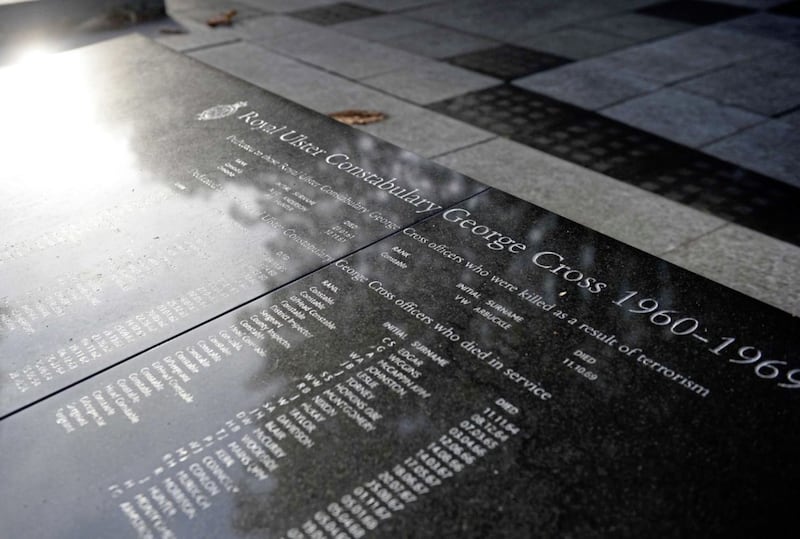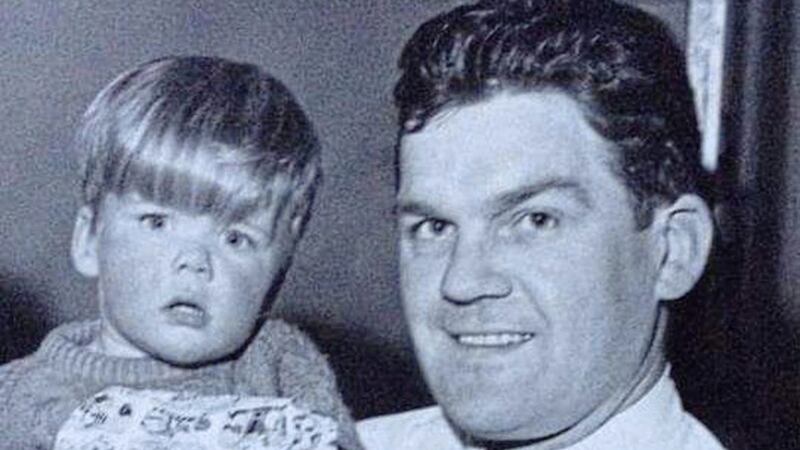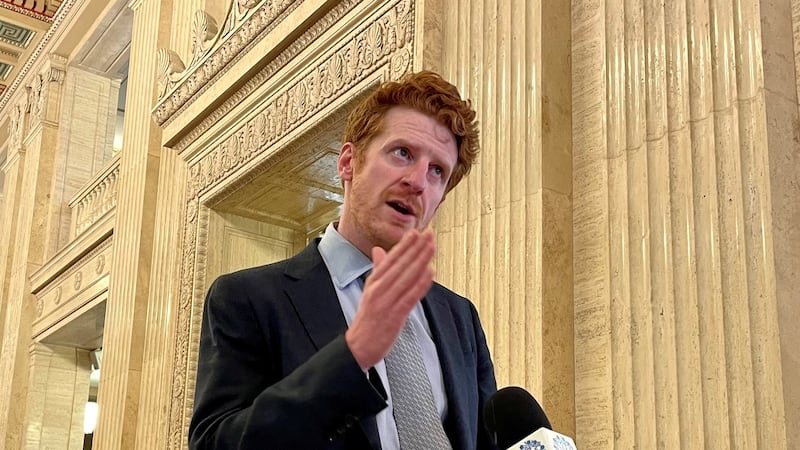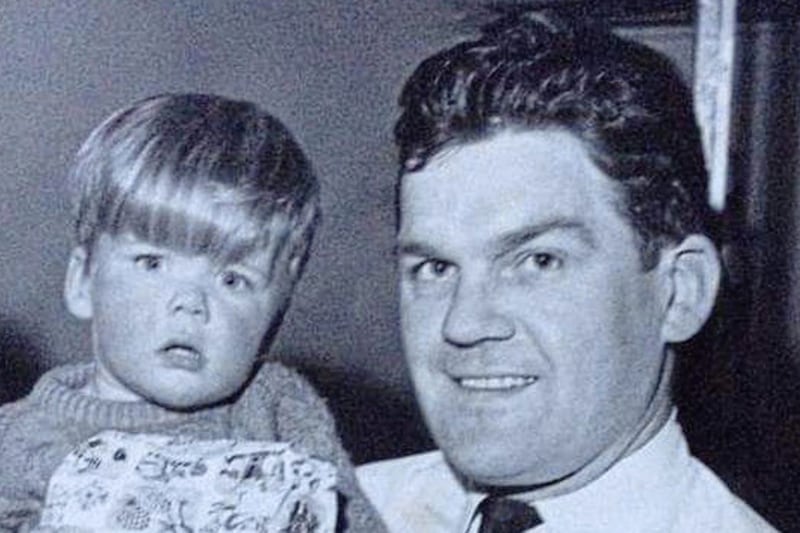ENTRIES for Victor Arbuckle in the myriad compendia of Northern Ireland murders are brief to the point of brusqueness.
One reads simply: `11 October: Three people were shot dead during street violence in the loyalist Shankill area of Belfast. Two were Protestant civilians (George Dickie and Herbert Hawe) shot by the British Army and one was an RUC officer (Victor Arbuckle) shot by the UVF.
'Arbuckle was the first RUC officer to be killed in the Troubles. The loyalists "had taken to the streets in protest at the Hunt Report, which recommended the disbandment of the B Specials and disarming of the RUC".'
Others contain key factual errors, describing him as a father-of-two when in fact he had one child and even giving the wrong date for his death.
His widow Dorothy - captured in press photographs at the funeral as a beautiful young woman in a black fur pillbox hat, her face frozen in grief - has never spoken publicly about her loss.
Her immediate focus after the murder was the couple's toddler son, Clive. Later, as it became clear that Constable Arbuckle's death was not an aberration but the first of many murders of RUC members, she would help to found a police widows' support group.
But until today, she has kept her grief close to the heart which never let go of her beloved Victor.
"When it actually did all happen I didn't talk to the papers at all," she says in the Co Down apartment where she now lives.
Clive, who now lives in Scotland with his family, was only two-and-a-half when his father was killed and now, aged 52, is "much, much older than his daddy ever got to be".
He doesn't remember his father but his mother made sure there were "always photographs" in the house, and she had spoken to him the day before as the 50th anniversary approached.
"We were only married for five years, after which our son arrived," Mrs Arbuckle said.
"We were both very, very happy. He was so proud of his son. I will never forget him. I think about him every day - how things would have been so different if he had been alive today."
She never remarried.
Constable Arbuckle was shot by the UVF during serious rioting as he stood beside other officers, including Sergeant Dermot Hurley.
He would be shot dead by the IRA just two years later - the first Catholic RUC officer to be killed in the Troubles.

They were two of 302 members of the constabulary killed between 1969 and 1998.
More than 250 uniformed colleagues walked behind Mr Arbuckle's coffin after the funeral service in a small east Belfast gospel hall.
At the time it was one of the biggest cortèges ever seen in that part of of the city.
Three men were later found not guilty of his capital murder - a charge which carried a sentence of death at the time. They were given jail terms ranging from six to 10 years for arms offences on the night of the killing.
Constable Arbuckle's younger sister Laura Martin said the whole family, who hail from Newtownstewart in Co Tyrone, were proud of their oldest brother when he joined "the police in Belfast".
"He called in with us the night before he was shot. He called in with my other sister, I lived in Omagh."
The murderous violence which would blight Northern Ireland for the next three decades was already percolating, with his sister recalling Mr Arbuckle recovering from an injury during earlier disturbances.
"He was on his way back down, he had got his hand injured. He was in great form. He liked his work."
The family did not expect what happened the following evening.
"You do worry about them with the riots and what-not, but you put it to the back of your mind.
"The night he was shot, I got the news, I couldn't believe it. I thought out of all the men in the police force why did it have to be Victor? He was in the wrong place at the wrong time."
That sense that his death was almost a freak accident is a hallmark of the time - nobody realised that it was in fact the start of what was to become `the long war'.

Stephen White, chairman of the RUC George Cross Foundation, said the scale of the loss of life to come was unimaginable.
"My father was an RUC man who served from 1969," the former PSNI assistant chief constable said.
"The first RUC officer was killed in 1933 and there were murders in almost every decade. There were two officers killed in the 1930s, four in the 1940s and four between 1956 and 1962.
"Because in the past there had been sporadic violence where those killed were less than the fingers of one hand, I suspect no one would have ever guessed the Troubles would last over 30 years and more than 300 officers would be killed and thousands more injured.
"Constable Arbuckle was a young man in his twenties with a wife and two-year-old child when he was brutally taken in a violent act.
"Our thoughts are very much with his family, but also the other RUC families. Even on that day two other officers were injured."
Mark Lindsay, chairman of the Police Federation for Northern Ireland, said Mr Arbuckle had been "doing his duty when gunned down by loyalists".
"It is a tragic irony that it was those who professed to uphold British values were responsible for committing the first murder of an RUC officer," he said.
"October 11 1969 will forever be remembered by the Arbuckle family and the police family. It was a day of infamy and shame. It was followed by all too many more days of tragedy.
"Like all the others on the roll of honour, 29-year-old Constable Arbuckle didn't deserve to have his life cut short. Their loss, and the anguish that it caused their family circles, still weighs heavily on the here-and-now.
"In an ultimately futile campaign waged by both republican and loyalist terrorists, they paid the ultimate price for policing communities torn apart and left brutalised.
"Their contribution was courageous and commitment undoubted. Constable Arbuckle, and all the others who were murdered, will never be forgotten."



